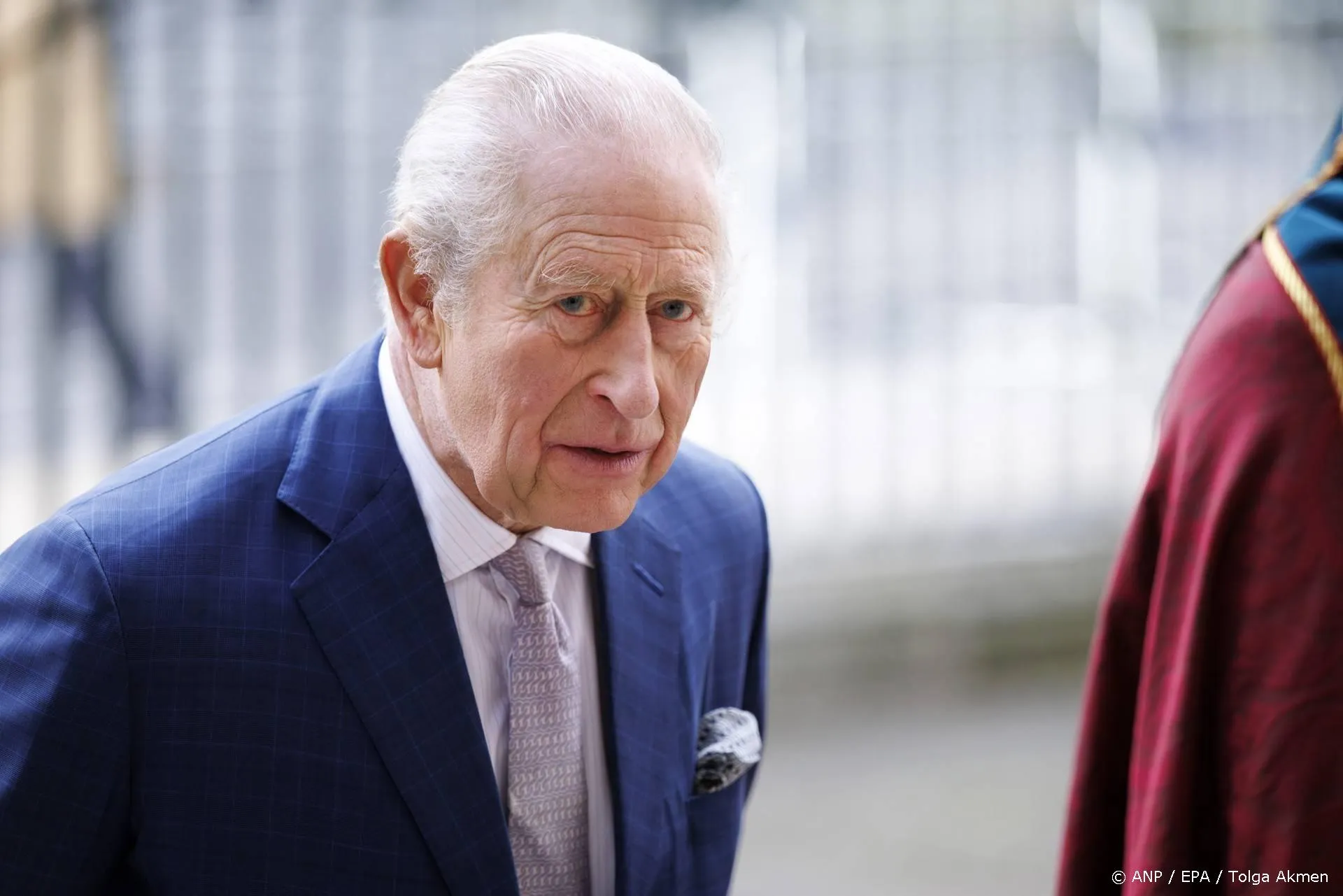Enquête bevestigt wetenschappelijke consensus over door de mens veroorzaakte opwarming
Wetenschappelijke consensus, ja! Maar die verhult gebrek aan wetenschappelijk bewijs!
Op basis van een uitvoerige enquête concludeert een recent gepubliceerd artikel van Bart Verheggen et al:
? Een enquête onder meer dan 1800 klimaatwetenschappers bevestigt dat er brede overeenstemming is dat de opwarming van de aarde hoofdzakelijk wordt veroorzaakt door antropogene broeikasgassen.
? Deze consensus wordt sterker met toegenomen expertise, zoals gedefinieerd door het aantal zelfgerapporteerde artikelen in de peer-reviewed literatuur.
? De belangrijkste conclusie in IPCC AR4 ('Assessment Report' numer 4 van het VNklimaatpanel) over attributie kan leiden tot een onderschatting van de broeikasgasbijdrage aan de opwarming van de aarde, omdat hierin impliciet het minder bekende maskerende effect van koelende aërosolen is meegenomen.
? Degenen die sceptisch zijn over een belangrijke menselijke invloed op het klimaat geven aan dat ze vaker in de media komen dan andere wetenschappers.
? Deze consensus wordt sterker met toegenomen expertise, zoals gedefinieerd door het aantal zelfgerapporteerde artikelen in de peer-reviewed literatuur.
? De belangrijkste conclusie in IPCC AR4 ('Assessment Report' numer 4 van het VNklimaatpanel) over attributie kan leiden tot een onderschatting van de broeikasgasbijdrage aan de opwarming van de aarde, omdat hierin impliciet het minder bekende maskerende effect van koelende aërosolen is meegenomen.
? Degenen die sceptisch zijn over een belangrijke menselijke invloed op het klimaat geven aan dat ze vaker in de media komen dan andere wetenschappers.
De exercitie werd uitgevoerd door een aantal Nederlandse klimaatprofessionals. Maar er was één vreemde eend in de bijt: de Australiër John Cook. Deze had enige tijd geleden een soortgelijk onderzoek gehouden, waarop echter veel kritiek is gekomen.
Op het blog van Bart Verheggen werd overwegend instemmend gereageerd op deze exercitie. Een van de respondenten, Bob Brand, schreef:
Gefeliciteerd met jullie publicatie! Het is een forse klus geweest, zo te zien.
Voor zover ik weet is dit verreweg de meest volledige en diepgaande survey die ooit onder klimaatonderzoekers is uitgevoerd. Jullie hebben duizenden internationale onderzoekers aangeschreven en meer dan 1800 hebben er de vragenlijsten volledig ingevuld.
Zoals bij iedere enquête speelt het self-selection effect mee, dat is onontkoombaar. De aangeschreven wetenschappers staat het vrij om wél of niet de vragenlijst in te vullen en te retourneren immers, je kan hen niet verplichten om het te doen.
Een deel van het self-selection effect is dat degenen met een uitgesproken mening (waarvan zij vinden dat die de minderheid vertegenwoordigt), extra gemotiveerd zijn om wél te reageren. Dus zou ik verwachten dat degenen met een klimaatsceptische mening bovengemiddeld de vragenlijsten retourneren.
Aldus Bob Brand.
Tja, dat is een plausibele redenering. Maar men kan ook anders redeneren. Hoewel een score van van ruim 1800 antwoorden op een enquête waarbij 8000 actieve klimaatonderzoekers werden aangeschreven niet slecht is, rijst de vraag waarom zo'n 6.200 uitnodigingen onbeantwoord bleven. We weten nu inmiddels dat het uiten van twijfel aan AGW ('Anthropogenic Global Warming') slecht is voor de carrière van de betrokken klimaatwetenschappers. Zou dat een verklaring kunnen zijn dat de meesten die enquête niet hebben beantwoord?
En wat te denken van de conclusie: 'Degenen die sceptisch zijn over een belangrijke menselijke invloed op het klimaat geven aan dat ze vaker in de media komen dan andere wetenschappers.'
Ik volg nu al meer dan 10 jaar de berichtgeving in de MSM over klimaatscepcis. En op enkele lofwaardige uitzonderingen na, heb ik daar nooit iets van gemerkt. Het is allemaal klimaatalarmisme dat de klok slaat.
Op het blog van Bart Verheggen waren de meeste reacties instemmend. Dat gold echter niet voor het blog van Bishop Hill (Andrew Montford), die ook aandacht aan de enquête had geschonken en zijn respondenten had uitgenodigd om met hun kritiek te komen. Ik pik er een aantal reacties uit.
Bishop Hill schreef zèlf:
Having Cook on the author team is obviously going to lead many people to write the paper off without even taking a look at it. When you are proven to have set out to write a paper to meet a predetermined conclusion, that is the way people will treat your work.
Inderdaad, de enquête van Cook et al is sterk bekritiseerd. Zie o.a. hier. En Marcel Crok noemde zijn werk zelfs misleidend. Zie hier.
Het lijkt mij dus onverstandig dat Bart Verheggen et al samenwerking met Cook hebben gezocht. Het verzwakt hun betoog. Maar ja, dat is hun eigen keuze geweest.
Maar wat zijn de reacties van de respondenten van Bishop Hill op de enquête van Verheggen et al? Ik pik er een aantal krenten uit:
Was Q1 "Does your research grant depend upon you reporting adverse effects of Climate Change"?
If not, why not?
The prominence given to opinions what elsewhere is called hearsay evidence leads one to conclude that there is a lack of direct, unambiguous, scientific evidence. Coherence of beliefs of academics in a subject area that will have multiple possible perspectives is just confirmation that people pursue what they believe in. If funding and status only goes towards one of many possible hypotheses and prejudice against those who do not toe the line this will just exacerbate the issue.
Questions unanswered:
Questions unanswered:
Q1: The rate of warming from 1900 to 1945 was higher than 1945 to present day despite the fact that after 1945 man-made CO2 began its large rise. Why is that?
Q2: One third of all man-made CO2 was released after 1998. Why did the Pause occur after 1998?
Q3: How many excuses have you come up for the Pause?
Q4: Why do you still blame CO2?
Given the difficulty presented to skeptics who wish to write a peer reviewed paper this poll is already stacked in favor of the climate hysterics. More importantly, who cares how many think-alikes there are in the world? It takes only one person to invalidate a hypothesis the alarmists have given us that. The models, all of them, are wrong. All 90% of the think-alikes have nothing but models to base their shared beliefs on because observed does not support that belief.
The key question was not asked: Do you think AGW is dangerous/catastrophic/the end of the world?
Here's what I think. This is a groundbreaking research paper; 90% of climate scientists, whose jobs / careers / mortgages, academic credibility, and future research funding, all depend on the still unproven thesis that anthropogenic atmospheric CO2 is the dominant factor in the Earth's climate system, all agree that anthropogenic atmospheric CO2 is the dominant factor in the Earth's climate system.
Pointing out the obvious (to a physicist) elementary errors of fact as well as theory in the consensus "explanations" has had no effect; pointing out that the temperature has gone up and down several times since 1880, while CO2 has increased monotonically, so there is no long-term correlation of temperature and CO2 at all, has had no effect (pointing out that indeed, and again quite obviously to a competent scientist, they have hung their whole program solely on the short warming period between 1975 and 2000, has had no effect). Pointing out the obvious errors, and even outright clear fraud, in the adjustments made to the measured temperatures, has had no effect.
These people are merely repeating the same incompetent refrain "there is 97% (more or less) consensus that the science is settled" they have been promulgating for years, to soothe the unknowing public. Surely by now we can't expect any of them to accept the facts, all contrary to their religiouslyheld beliefs, and come clean; after all, all of our institutions have been suborned by their false science, so they are only motivated to freeze out the harsh (for them) truth, long enough to establish their political goals, which are frankly tyrannous, and clearly ruinous. There is obviously no truth to be found in them anymore, and no reason to read their empty propaganda.
Two things come immediately to mind. First, ".... various aspects of climate change, including physical climate, climate impacts, and mitigation". No one studying climate impacts or mitigation should have been included simply on the basis that they are likely to have no direct experience in terms of causes other than accepting what others have told them and a predisposition to assuming that any climate change is dangerous if not catastrophic.
Most climate scientists need to keep the alarmist belief going to preserve their jobs, so I'm afraid their credibility is so shot to bits that this sort of study also has no credibility.
A more interesting survey would explore issues like the following:
How many climate models have been validated ? (Based on agreement between forecast and reality.)
Should models that have not been validated be used for policymaking?
Why are models that did not predict the pause still in use?
If CO2 provides the most powerful forcing and nothing else can cause such a rate of warming and nothing else can stop it, how do you explain the last 16+ years?
Such a survey would be very interesting.
This is one of the chores of the age: critically reviewing the machinations, be they in notionally scientific papers or in PR initiatives, of those who are hellbent on spreading alarm about our impact on climate. I think there is a calm and wellinformed collection of folks who are collectively very good at such reviews, and they might well be growing in numbers. Most of them, I suspect, would rather be spending their time in other ways than dealing with the guff from deluded, demented, deranged or merely fanatical activists, but the sooner the zealots' balloons are burst, the sooner more productive work can be pursued, and the sooner the dreadful impacts of the climate scare campaigns will begin to be cleared up.
I note though that the "headline"consensus is now only 90% . This means 7% have come across! Latest survey of climate scentists reveals that the number of sceptics has more than tripled in just over a year!
"90% of respondents with more than 10 climate-related peer-reviewed publications (about half of all respondents), explicitly agreed with anthropogenic greenhouse gases (GHGs) being the dominant driver of recent global warming."
Gatekeeping can be really effective...
If the IPCC admits that only 3% of atmospheric CO2 is man-made, how the hell can anyone, let alone a "scientist" assert that this 3% controls the earth's climate? Say it again and again until it sinks in. Otherwise Cook et al are charlatans, or worse are propagandists for a subversive cause against our way of life. I hope the pollies come to their senses soon I'm weary of this bullshit.
Aldus enkele respondenten op het blog van Bishop Hill.
Waar komt die welhaast ziekelijke preoccupatie van de klimatologie met consensus toch vandaan? Het antwoord op die vraag is eenvoudig. Als men geen bewijs kan leveren voor AGW en dat is tot op heden niet gelukt, ondanks het feit dat daarvoor een hoge beloning is uitgeloofd dan moet men zich wel op een consensus onder wetenschappers beroepen.
Maar, zoals wijlen Michael Crichton al zei:
I want to pause here and talk about this notion of consensus, and the rise of what has been called consensus science. I regard consensus science as an extremely pernicious development that ought to be stopped cold in its tracks. Historically, the claim of consensus has been the first refuge of scoundrels; it is a way to avoid debate by claiming that the matter is already settled. Whenever you hear the consensus of scientists agrees on something or other, reach for your wallet, because you're being had.
Let's be clear: the work of science has nothing whatever to do with consensus. Consensus is the business of politics. Science, on the contrary, requires only one investigator who happens to be right, which means that he or she has results that are verifiable by reference to the real world. In science consensus is irrelevant. What is relevant is reproducible results. The greatest scientists in history are great precisely because they broke with the consensus.
There is no such thing as consensus science. If it's consensus, it isn't science. If it's science, it isn't consensus. Period.
Voor mijn eerdere DDSbijdragen zie hier.
Ga verder met lezen
Dit vind je misschien ook leuk
Laat mensen jouw mening weten
Lees ook
Loading


